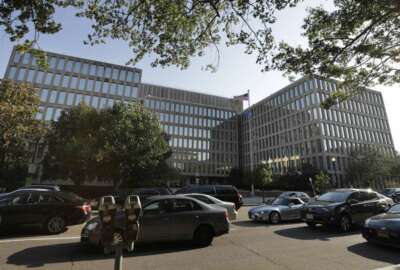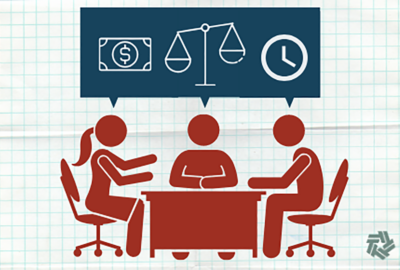

Bottom line: Both parties could be missing the boat (and vote) if they attack or ignore feds because they THINK they know their politics, but don’t!
It’s probably safe to say that at the national level, most politicians think most civil servants are Democrats? If so, it is possible both Democrats and Republicans are missing the boat! And millions of votes in key districts and states.
The most important midterm election in decades is coming up in November. It’ll determine who controls the House, Senate and maybe who both political parties nominate for the 2024 race for the White House. Midterms tend to have lower turnouts than the 4-year variety. In any case every vote, as usual, will count.
While most politicians are courting just about every bloc of voters, by race, ethnicity, sex, occupation, religion and region, one of the biggest blocs — active and retired feds and their families — are often overlooked. And not just because of the Hatch “No Politics” Act.
Most people understand feds are a big deal in the metro Washington, D.C. area. It includes all of D.C., parts of Maryland, Virginia and a touch of West Virginia. And looking at the presidential/congressional vote, it leans heavily Democratic. And while its federal population is huge, inside-the-beltway feds are actually a smaller percentage of the workforce than in Colorado Springs; Virginia Beach; Honolulu; Ogden, Utah; El Paso and San Antonio, Texas; Augusta, Georgia; Charleston and Columbia, South Carolina; Oklahoma City; Dayton, Ohio; Jacksonville, Florida; Tucson and Albuquerque.
California has 172,000 feds, Texas 148,000, Florida 100,000. And the beat goes on.
The fed numbers are much more impressive when retirees — also smart and strategically located around the nation — are included. That group, with like-minded spouses (is there such a thing?), all old enough to vote: That is a bloc. Assuming they vote alike.
For years Republican and Democratic politicians have assumed the majority of federal civil servants are Democrats. Right or wrong. The result is that GOP candidates offer ignore, or run against, “bureaucrats” — “drain the swamp,” etc — while Democrats support them. Or take them, and their votes, for granted. The exception came in 1972 when the presidents of the American Federation of Government Employees and the National Association of Letter Carriers endorsed Richard Nixon — as individuals, not union chiefs — for reelection.
People who have studied active and retired feds in their natural habitats believe that the Environmental Protection Agency or Department of Housing and Urban Development workers in D.C., New York or San Francisco are more likely to be Democrats than civilian Air Force mechanics in Dayton, law enforcement personnel in Texas or workers in federal prisons. And that union members are much more likely to be Democrats than Republicans. At least most of the time…
But not always.
In fact, the American Federation of Government Employees is currently in the process of divorcing its members in the union’s Local 118, which represents thousands of ICE workers in the Department of Homeland Security. AFGE represents 700,000 feds. But only about half that number are actually dues-paying members. And that’s true in most non-postal federal unions. Outside the U.S. Postal Service, the vast majority of federal workers are not union members. Some because they don’t like the unions tactics or politics. Some because they don’t think they should have to pay dues to be represented by the union. Either way, that’s a fact Democratic and Republican candidates should consider when deciding whether to attack, support or ignore feds.
Most of the leadership in most federal-postal unions routinely support Democratic presidential candidates, for both presidential and congressional elections. But there are exceptions: In 2016 AFGE supported Hillary Clinton as the Democratic nominee, then Joe Biden in 2020. But a bloc of the union, the National Border Patrol Council, got lots of publicity when it endorsed Donald Trump and his build-the-wall promises.
Bottom line: Both parties could be missing the boat (and vote) if they attack or ignore feds because they THINK they know their politics, but don’t!
So what do you think? Do most feds vote as a bloc? Or are their politics more flexible based on where they live, where they work, their occupations and issues of the day. We’d like to hear from you: mcausey@federalnewsnetwork.com
For several months in 1971-72 the National Accelerator Laboratory used a ferret named Felicia to clean the insides of the vacuum tubes on its particle accelerator.
Source: Atlas Obscura
Copyright © 2025 Federal News Network. All rights reserved. This website is not intended for users located within the European Economic Area.
Mike Causey is senior correspondent for Federal News Network and writes his daily Federal Report column on federal employees’ pay, benefits and retirement.
Follow @mcauseyWFED


